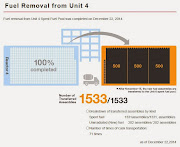And that's supposedly sending the stock market lower today.
Stock market slides as savings rate jumps
(6/26/09 AP via Yahoo Finance)
"Stocks were mostly lower Friday after the Commerce Department reported that personal spending, incomes and savings all rose in May. What troubled investors, though, was that the savings rate soared to 6.9 percent, a 15-year high, while spending rose by a modest 0.3 percent.
According to the announcement released today by Bureau of Economic Analysis (Commerce Department),
- Personal income increased $167.1 billion, or 1.4 % in May, compared with April's 0.7%
- Personal consumption expenditures (PCE) increased $25.1 billion, or 0.3 %, from April's 0%
- Personal saving as a percentage of disposable personal income was 6.9%, compared with 5.6 % in April
However, the same announcement also says about wages and salaries:
"Private wage and salary disbursements decreased $12.4 billion in May, compared with a decrease of $0.7 billion in April. Goods-producing industries' payrolls decreased $12.9 billion, compared with a decrease of $12.2 billion; manufacturing payrolls decreased $9.8 billion, compared with a decrease of $4.9 billion. Services-producing industries' payrolls increased $0.5 billion, compared with an increase of $11.5 billion. Government wage and salary disbursements increased $3.9 billion, compared with an increase of $5.7 billion. "
"The trend suggests consumers are being extremely careful with their money. That's good for the individual, but not great for the overall economy in the short-term."
Why not? Because 72% of the U.S. GDP depends on consumer spending. Let's take a look again at the 2009 1st quarter GDP announced on Thursday:
Let's check what's under "Personal Consumption Expenditures" to figure out what economists, analysts, traders, investors, government officials, everyone else but the "consumers" want "consumers" to spend. Bold typed items are major ones.
- Motor vehicles and parts
- Furniture and household equipment
- Food
- Clothing and shoes
- Gasoline, fuel oil and other energy goods
- Housing service (whatever it is)
- Electricity and gas
- Transportation service
- Medical care
- Recreation
- Other services
Private businesses, large and small, are still cutting back, trying to purge the excess from the system. Consumers, many of whom happen to be business owners themselves, are doing the same. Shouldn't the government? Why does GDP need to rise all the time?
In the meantime, consumer sentiment rose unexpectedly to 70.8 in June, according to University of Michigan survey. It's the highest since February 2008.
The conventional wisdom is "If consumers feel good about things, they will spend more." There's another possibility, from my anecdotal observation: People feel better by saving more and/or reducing the debt.
One thing I can think of that will almost force consumers to spend like there's no tomorrow: massive inflation. A threat of such an event is probably enough to get them to start exchanging fiat currency into real assets - anything from toilet paper rolls to real estate.



 Tokyo Time
Tokyo Time
![[Most Recent Quotes from www.kitco.com]](http://www.kitconet.com/charts/metals/gold/t24_au_en_usoz_2.gif)



0 comments:
Post a Comment